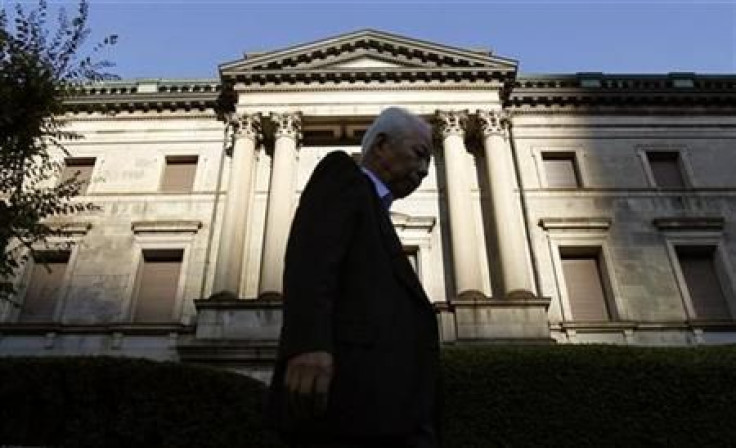Japan, EU agree to launch free trade talks

Japan will start free trade talks with the European Union next spring, alarmed by the head start made by its main manufacturing rival in Asia, South Korea, which signed a pact with the European bloc last month.
At the G-20 summit in Seoul, Japanese Prime minister Naoto Kan told European Council President Herman Van Rompuy and European Commission President Jose Manuel Barroso about his country’s interest in entering into free trade negotiations with the bloc.
The two sides agreed to start high-level preparatory discussions before launching formal free trade negotiations at a summit scheduled for next year. “I hope we will agree with the EU to launch the talks at next year's regular summit meeting,' Japanese Deputy Chief Cabinet Secretary Tetsuro Fukuyama quoted Kan as telling the EU side, according to Reuters.
According to Fukuyama, two key issues will have to be resolved before the two sides can enter into a deal. These are EU's demand that Japan eases non-tariff trade barriers including government procurement, and Japan's demand that EU tackles auto-related and other tariffs.
Japanese automakers and electronics giants have been ramping up efforts to make the government kick-start free trade talks with the EU, concerned about losing further market share to its South Korean competitors.
Japanese Daily Asahi Shimbun reported that Japanese manufacturers of home appliances, automobiles and other products will lose $3 billion worth of exports to the EU because of the EU-South Korea FTA.
The South Korea-EU FTA was signed by European Council President Herman Van Rompuy and South Korean President Leel Myung-bak early last month. It will come into effect in July 2011, and is aimed at eventually abolishing tariffs between the EU and South Korea within five years.
EU officials have said FTA with South Korea, the bloc's first with an Asian country, will likely double trade between it and South Korea.
What alarms Japanese automakers and electronic giants is the fact that under terms of the FTA, Korean manufacturers will be free of the EU's 10 percent tariff on automobiles and 14 percent tariff on TV sets.
The combined market share of South Korea's Hyundai Motor and Kia Motors in the EU region was 4.5 percent between January and August this year. Against this, Japan’s leading automakers, Toyota Motor and Nissan Motor, had 4.3 percent and 2.9 percent market share, respectively, according to data by the European Automobile Manufacturers' Association.
As the trade talks start, Japan will come under pressure from the EU over the issue of non-tariff barriers as EU believes Tokyo's efforts those barriers are not yet sufficient. Many so-called non-tariff barriers to trade remain in place, which hamper access to the Japanese market and cause hesitance from the EU side to go ahead, Rompuy had said earlier in the year.
The EU has been pressuring Japan to ease safety standards for automobiles and to hasten the screening process of medical devices while Tokyo wants the EU to halt tariffs on automobiles and flat-panel televisions.
According to the European Business Council, EU exports to Japan could rise as much as 7 percent if current tariffs and non-tariff measures are removed. This will help boost Japan's trade to the EU bloc by almost 60 percent, the council says.
© Copyright IBTimes 2024. All rights reserved.











